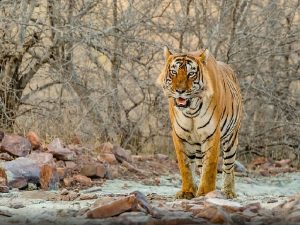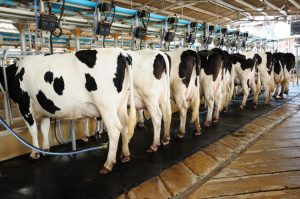Today’s Current Affairs: 5th September 2024 for UPSC IAS exams, State PSC exams, SSC CGL, State SSC, RRB, Railways, Banking Exam & IBPS, etc
Table of Contents
Review Petition : NEET UG 2024 Examination

A group of medical students recently filed a review petition challenging the Supreme Court’s decision to dismiss their writ petition, which sought to cancel the NEET UG 2024 examination.
Review Petition:
- When a judgment is passed by a court, the doctrine of functus officio applies to it.
- This Latin doctrine means that if the judgment in a case has been pronounced or an order has been made following due process of law, in such circumstances, the case cannot be reopened.
- The right to file a review petition is an exception to this doctrine.
- The word “review” means to examine again.
- Article 137 of the Constitution gives the Supreme Court the power to review any of its judgments or orders.
- The court has the power to review its rulings to correct a “patent error” and not “minor mistakes of inconsequential import”.
- Similarly, High Courts have also been given the power to review their judgments under Article 226 of the Constitution.
- However, it can only be invoked when there is a breach of law or violation of the Constitution.
- Grounds for review petition: In a 2013 ruling, the Supreme Court itself laid down three grounds for seeking a review of a verdict it has delivered.
- The discovery of new and important matter or evidence which was not within the knowledge of the petitioner or could not be produced by him; mistake or error apparent on the face of the record; or any other sufficient reason, which means a reason that is analogous to the other two grounds.
Bandipur Tiger Reserve : Rescued a Tusker

An alert elephant patrolling team recently rescued a tusker that was stuck in a rail barricade in the Maddur range of Bandipur Tiger Reserve.
- Bandipur Tiger Reserve is situated in two contiguous districts (Mysore and Chamarajanagar) of Karnataka and located in the tri-junction area of the States of Karnataka, Tamil Nadu, and Kerala.
- Geographically, it is an “ecological confluence” of the Western and Eastern Ghats.
- It was once a hunting ground for the rulers of the neighbouring kingdom of Mysore.
- It was established in the year 1931 as Venugopala Wildlife Park by the Maharaja of Mysore.
- It was then expanded with the name Bandipur Tiger Reserve under Project Tiger in 1973.
- It is part of the larger Nilgiri Biosphere Reserve, which is recognized as a UNESCO World Heritage Site.
Drug Repurposing:

Researchers who have been working in the field of drug repurposing have found the repurpose potential of an antidepressant drug for cancer management.
- Drug Repurposing is the technique of using an existing drug or drug candidate for a new treatment or medical condition for which it was not indicated before.
- It is also called drug repositioning or drug reprofiling, which is the identification of new therapeutic uses for existing or investigational drugs.
- It was initially developed to treat a different medical condition.
- It has been described as a serendipitous process that happens unexpectedly.
- The goal of drug repurposing is to quickly identify compounds with an established safety profile and known therapeutic advantages that may prove efficacious for other indications.
- Pharmaceutical companies are undertaking drug repurposing projects for rare diseases, oncology, infectious and autoimmune diseases and more.
- Drug repurposing can significantly reduce timelines and costs compared with de novo drug development.
- This research group has shown that Selegiline (L-deprenyl), an antidepressant drug from a class of drugs called monoamine oxidase (MAO) inhibitors, might be applied as anticancer therapeutics for breast cancer.
- Selegiline was found effective in killing estrogen and progesterone-positive (ER+ & PR+) as well as triple-negative breast cancer (TNBC).
AgriSURE Fund:

The Union Minister for Agriculture and Farmers’ Welfare and Rural Development launched the AgriSURE Scheme in New Delhi.
- AgriSURE Fund for Start-ups & Rural Enterprises (AgriSURE) is an innovative fund which is a pioneering step toward revolutionizing the agricultural landscape in India.
- It mainly focuses on technology-driven, high-risk, high-impact ventures.
- It is designed to fuel growth and foster innovation in the agricultural and rural start-up ecosystem.
- A Blended capital fund of ₹750 crore with SEBI Registered Category II, Alternative Investment Fund (AIF), contributions from the Government of India is ₹250 crore, NABARD is ₹250 crore and ₹250 crore is being mobilized from banks, insurance companies and private investors.
- Its main focus areas include promoting innovative, technology-driven initiatives in agriculture, enhancing the farm produce value chain, creating new rural ecosystem linkages and infrastructure, generating employment and supporting Farmers Producer Organisations (FPOs).
- The fund would encourage entrepreneurshipthrough IT-based solutions and machinery rental services for farmers, driving sustainable growth and development in the agricultural sector.
- NABVENTURES a fully owned subsidiary of NABARD will act as the fund manager.
Phrynarachne Decipiens:

Zoologists in Assam have added a species of spider Phrynarachne decipiens whose web mimics a bird’s excrement to India’s list of arachnids.
- Phrynarachne decipiens is better known as the bird dung or bird-dropping crab spider.
- It was known to be distributed in Malaysia and Indonesia’s Java and Sumatra.
- It has been recorded for the first time in the country from Assam’s Sonapur in the Kamrup (Metropolitan) district and the Chirang Reserve Forest in the Kokrajhar district.
- The spider is usually seen lying motionless 1-2 ft above the ground on the upper side of broad leaves.
- The chalky white colour of the spider and whitish deposition (its web) on the leaves, looking like bird excreta, make it very difficult to be sighted
- It has the stout spermathecae (a sac-like organ in the female reproductive tract that stores sperm received during copulation) with posterior heads almost touching each other.
Preservation Of Indigenous Cattle Breeds:

The National Institute of Animal Biotechnology (NIAB) is working on a number of initiatives for preservation and sustainable development of the livestock sector.
- NIAB is using Next Generation Sequencing (NGS) data and genotyping technology to establish molecular signatures for registered cattle breeds.
- Molecular signatures help in accurately identifying and maintaining the purity of indigenous cattle breeds and conserving unique genetic traits.
- NIAB is focussing on developing new-generation vaccines against diseases like brucellosis to improve animal health and reduce economic losses.
- Efforts are aligned with the ‘BioE3 (Biotechnology for Economy, Environment, and Employment)’ policy to enhance biomanufacturing.
- NIAB is focussing on development of ‘bio-scaffolds’ for tissue repair and drug delivery using natural and 3D-printed materials.
- Scaffold is a base material in which cells and growth factors are embedded to construct a substitute tissue.
- A bovine lung cell-based 3D model has been created for tuberculosis drug screening and disease modelling.
- NIAB is working in line with six thematic areas set by the Department of Biotechnology (DBT) to promote a circular bio-based economy, focusing on alternative proteins and sustainable biomanufacturing.
- NIAB has plans to use bacteriophages and their ‘lytic’ proteins as antibiotics alternatives to target bacterias such as staphylococci, E. coli and streptococci.
- Bacteriophages, also known as phages, are viruses that infect and replicate only in bacterial cells. Bacteriophages kill bacteria.
- Phage lytic proteins are a clinically advanced class of enzyme-based antibiotics, so-called enzybiotics.
- A biomarker (metabolite and protein) has been developed for early assessment of nutritional stress which may lead to decreased productivity and infertility in cattle population
- NIAB promotes sustainable livestock farming through community engagement and programs like MILAN, which connects with livestock farmers to demonstrate new technologies.
Solar Magnetic Field Research:

Astronomers at the Indian Institute of Astrophysics (IIA) have found a new way to study the Sun’s magnetic field by studying the magnetic field at different layers of the solar atmosphere. The astronomers have done this using data from IIA’s Kodaikanal Tower Tunnel Telescope.
- The study focused on an active sunspot region characterised by complex features, including multiple umbrae (dark central regions) and a penumbra (outer lighter region).
- Observations were conducted using the Hydrogen-alpha line and the Calcium II line.
- These lines help infer the magnetic field’s stratification at various heights in the solar atmosphere.
- The findings are significant in advancing our understanding of the Sun’s magnetic field, setting the stage for future studies to explore solar magnetic phenomena in greater detail.
- Kodaikanal Tower Tunnel Telescope is a three-mirror based Solar telescope owned and operated by the Indian Institute of Astrophysics.
- British astronomer John Evershed first observed the Evershed Effect in 1909 at the Kodaikanal Observatory in India.
- Evershed Effect is a phenomenon that describes the flow of gas across the surface of sunspots.
- The solar atmosphere consists of interconnected layers through magnetic fields. These fields play a crucial role in transferring energy and mass, which helps address the “coronal heating problem” and drives the solar wind.
- The coronal heating problem is a mystery in solar physics that involves understanding why the Sun’s corona (outermost layer of the Sun’s atmosphere) is much hotter than the layers below it.
Zyklon B:

On 3rd September 1941, Nazis first used Zyklon B to kill Jews at the Auschwitz concentration camp in Poland.
- Auschwitz was a Nazi Germany concentration camp in which almost one million Jews were systematically murdered.
Jews were starved, worked to death and killed in the complex of gas chambers using toxic gasses like Zyklon B. - Zyklon B is the commercial name of hydrogen cyanide (HCN).
- It was developed as a pesticide and rodenticide in the early 1920s in Germany.
- It was produced as blue-coloured pellets that changed to an extremely poisonous gas, when exposed to the air.
- Its inhalation led to internal asphyxiation of the victims by blocking the exchange of oxygen in the red corpuscles and impeding cellular respiration.
- Zyklon B became notorious during World War II. France in 1916 and Italy and the United States in 1918 also used it during World War I.
Sumit Antil’s Gold at Paris 2024 Paralympics:
Sumit Antil etched his name in the annals of Indian sports history at the Paris 2024 Paralympics. The 26-year-old para-athlete not only claimed the gold medal in the men’s javelin throw F64 class but also became the first Indian male para-athlete.
Brindavan Gram Scheme and Gita Bhavan Project:
he Madhya Pradesh government, under the leadership of Chief Minister Mohan Yadav, has approved a groundbreaking scheme named ‘Brindavan Gram’. This initiative, formally announced on Janmashtami (August 26), aims to transform selected gram panchayats into model villages, focusing on cow protection and rural development.
L’Oreal Paris Announces Alia Bhatt as New Global Brand Ambassador:
French cosmetics giant L’Oreal Paris has made a significant announcement, revealing that it has signed Alia Bhatt, one of Bollywood’s most prominent actresses, as its newest global brand ambassador.
Vishanu Yuddh Abhyas:
Under the National One Health Mission (NOHM), a comprehensive mock drill named “Vishanu Yuddh Abhyas” (Virus War Exercise) was held in Ajmer district, Rajasthan, from August 27 to August 31, 2024. This exercise aimed to assess the pandemic preparedness of the National Joint Outbreak Response Team (NJORT), which includes experts from human health, animal husbandry.
India and UNESCO to Co-Organize 2024 Chief Science Advisers Roundtable in Paris:
The 2024 Chief Science Advisers’ Roundtable (CSAR) is scheduled for September 6, 2024, at UNESCO’s headquarters in Paris. This event is a collaborative effort between the Office of the Principal Scientific Adviser to the Government of India and UNESCO’s Natural Sciences Sector.
President Murmu Approves Constitution of 23rd Law Commission:
President Droupadi Murmu has approved the formation of the 23rd Law Commission of India for a three-year term, effective from 1 September 2024 to 31 August 2027. This commission will consist of a full-time chairperson, four members, and additional ex-officio and part-time members.
Finance Ministry to Sell 6.78% Stake in GIC Re for Rs 4,700 Crore:
The Union Ministry of Finance plans to divest a 6.78% stake in General Insurance Corporation of India (GIC Re) through an offer-for-sale (OFS) to raise approximately Rs 4,700 crore. This will be the first stake sale since GIC Re’s listing in 2017.
Anuya Prasad Wins Gold at World Deaf Shooting Championship:
At the second World Deaf Shooting Championship in Hannover, Germany, teenage shooter Anuya Prasad from Jaipur secured the gold medal in the women’s air pistol event. The 17-year-old, a first-year Visual Arts student at Rajasthan University, clinched victory.
Vedic-3D Museum in Varanasi:
The Uttar Pradesh government has announced the construction of a Vedic-3D museum at Sampurnanand Sanskrit University in Varanasi, Prime Minister Narendra Modi’s parliamentary constituency. This state-of-the-art museum will focus on Indian astrology, astronomy, and Vedic literature.




